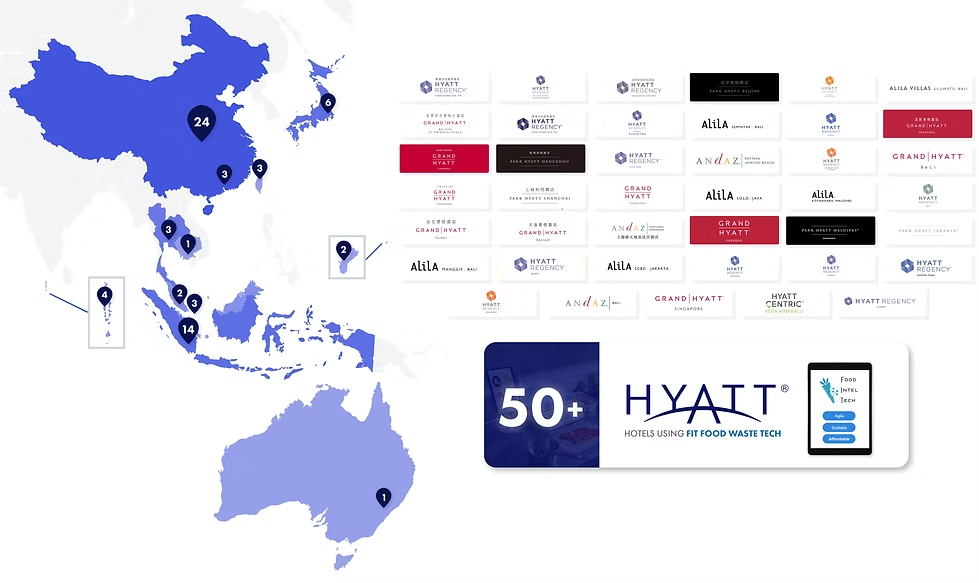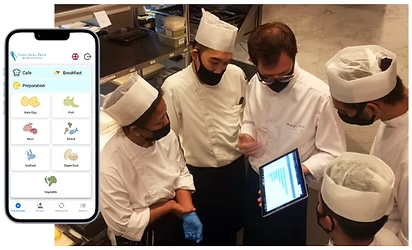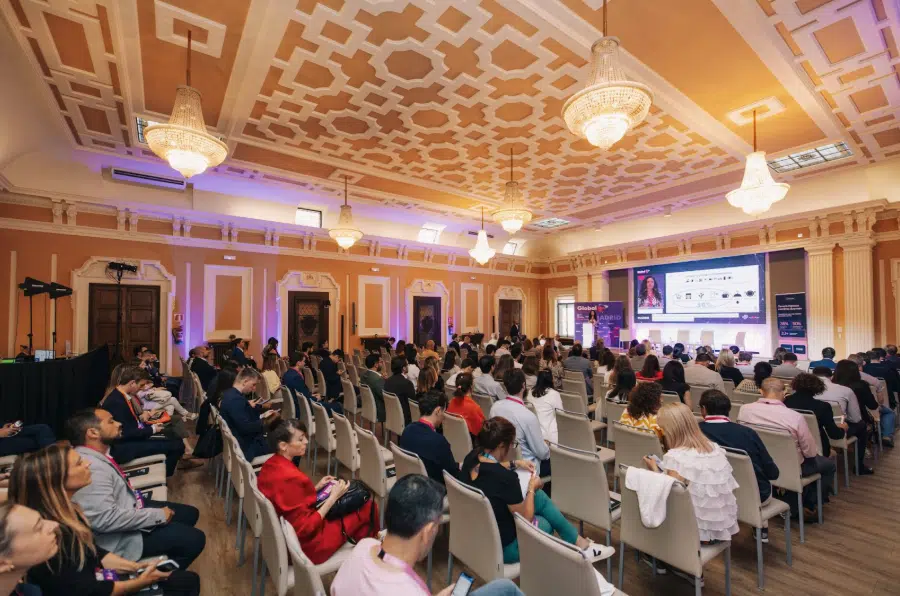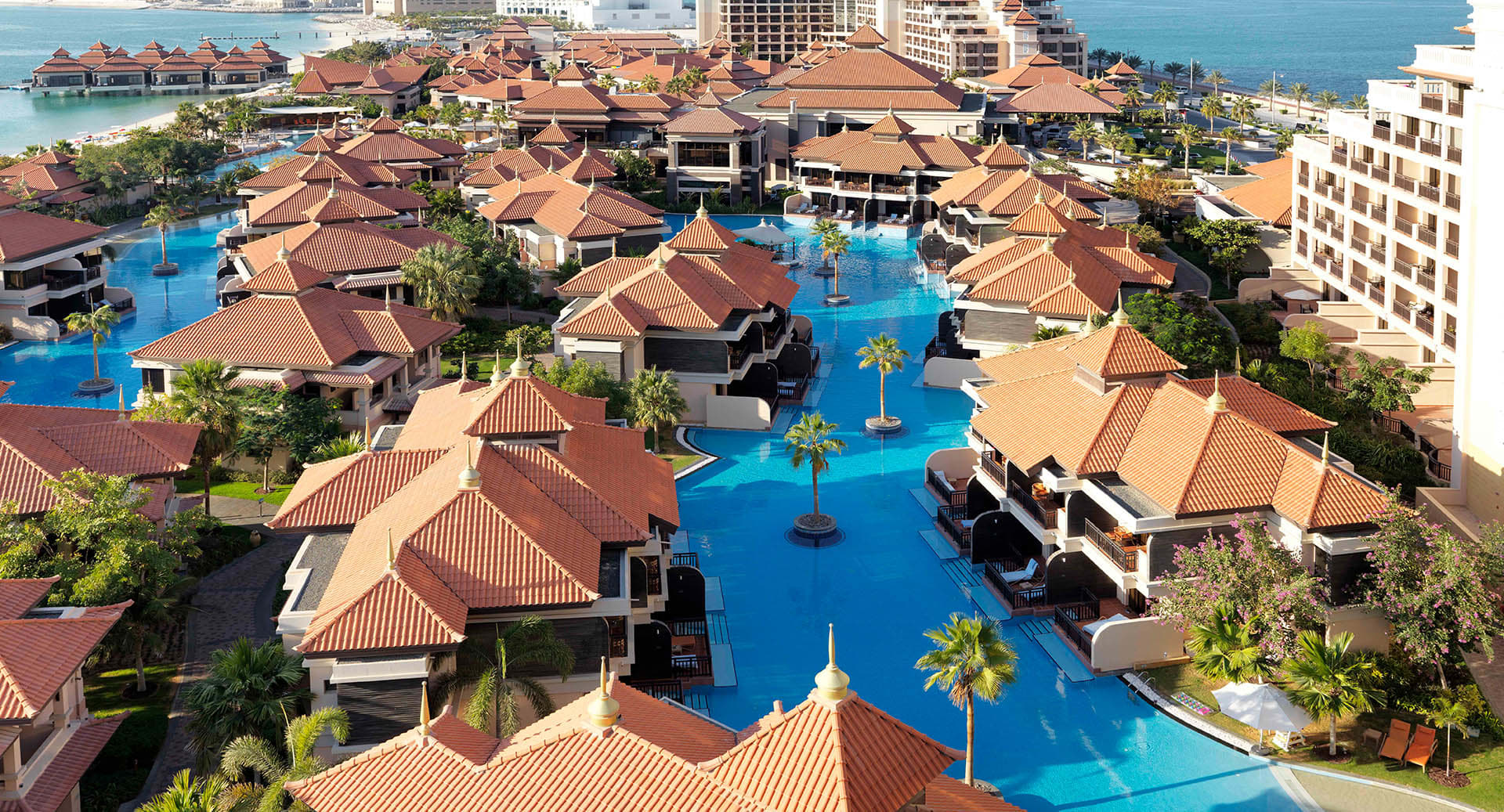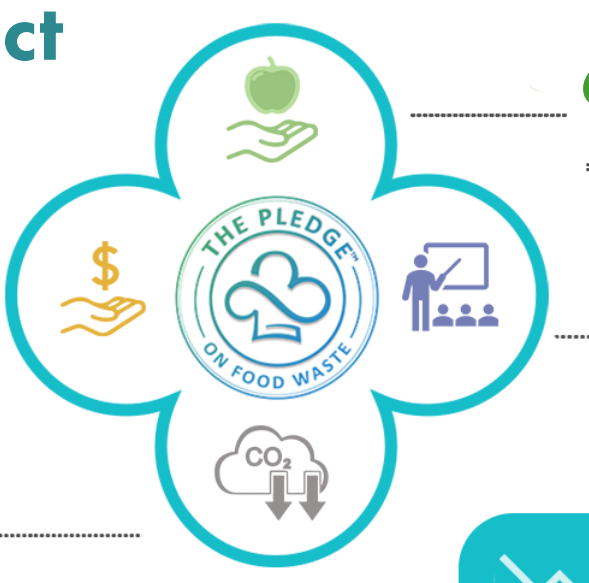A data-driven partnership powered by Lightblue and Accredited Consultant Radhika Arapally from Sustainability Kiosk.
At Anantara The Palm Dubai Resort, food waste prevention isn’t a side project, it’s embedded in the daily rhythm of the kitchen. Through a combination of data intelligence, operational refinement, and deep team commitment, the resort has achieved measurable, lasting results.
Led by Cluster Executive Chef Dominic Petzold and supported by The PLEDGE on Food Waste and one of our Accredited Consultants, Anantara’s Crescendo Restaurant achieved the All Star Level certification of The PLEDGE on Food Waste with a perfect 100% score placing it among the top-performing certified hotels worldwide.
So, how did they do it and what can other properties learn from their success?
1. Smarter Forecasting for Smarter Kitchens
The Challenge:
Many hotels still base forecasts on gut feeling or yesterday’s figures often leading to overproduction, higher costs, and unnecessary waste.
The Solution:
Anantara adopted a data-driven forecasting approach that goes far beyond standard cover counts. Their team analyzed consumption trends, guest demographics, seasonal demand, event calendars, and even weather patterns. This comprehensive data set provided precise insights into what guests truly want and when.
The Impact:
Accurate forecasting reduced over-ordering and minimized spoilage. The result was a leaner, more efficient operation where resources are used optimally, and food waste became the rare exception instead of the norm.
2. Rethinking the Buffet Model
The Challenge:
The traditional “always full” buffet mindset is one of the biggest food waste culprits in hospitality. Large serving trays kept filled to the brim often end up as untouched waste.
The Innovation:
Anantara redesigned its buffet strategy by introducing smaller, more frequent replenishments, particularly for slower-moving dishes. Rather than prioritizing abundance, they focused on freshness and presentation.
Why It Works:
Guests value quality and freshness over sheer volume. This simple operational change maintained guest satisfaction while drastically reducing plate and buffet waste, without compromising the luxury dining experience.
3. Turning Guests into Sustainability Partners
The Old Way:
Generic “save the planet” messages rarely resonate. Without meaningful engagement, guests remain passive observers instead of active contributors.
Anantara’s Approach:
The team introduced thoughtful touchpoints throughout the guest journey, from digital screens and menus to in-room information, highlighting zero-waste dishes and sustainability-driven dining events. These initiatives celebrated innovation rather than restriction.
The Result:
Guests felt empowered to participate in a sustainability journey that complemented their luxury stay. The strategy strengthened brand loyalty, created positive word-of-mouth, and reinforced the resort’s position as a sustainability leader.
4. Waste Audits as a Management Tool
The Missed Opportunity:
Many properties overlook the power of regular waste audits, treating them as compliance tasks instead of strategic insights.
The Game Changer:
Anantara implemented continuous waste tracking, turning data into action. Regular audits identified exactly which stations, menu items, and shifts generated the most waste.
The Outcome:
With this intelligence, the culinary team made targeted improvements, cut inefficiencies, and optimized production—all while maintaining food quality and guest satisfaction.
The Results: Sustainability That Drives Profitability
Anantara The Palm Dubai now reports:
- Significant reductions in food waste across buffet and à la carte operations
- Improved food cost-to-revenue ratios
- Enhanced kitchen efficiency and staff engagement
This success story proves that reducing food waste isn’t just good for the planet, it’s good for business.
What Other Hotels Can Learn
Whether you manage a boutique property or a global resort, Anantara’s achievement offers a clear roadmap for success:
✅ Use data-driven forecasting to prevent waste before it happens
✅ Reinvent your buffet operations with smaller, fresher service cycles
✅ Engage guests meaningfully in your sustainability journey
✅ Treat waste audits as a business intelligence tool not a formality
Partnering for Impact
This project exemplifies how Lightblue and our network of Accredited Consultants empower hospitality brands to turn sustainability into measurable performance.
By combining The PLEDGE on Food Waste certification with practical on-site strategies, we help hotels like Anantara achieve both environmental and financial impact.
If a world-class resort in one of the most competitive markets can reach a perfect 100% on The PLEDGE, your property can too.
Ready to take the next step?
Discover how Lightblue can help your hotel or restaurant reduce waste, enhance profitability, and lead with purpose.
👉 Learn more about The PLEDGE on Food Waste
👉 Explore our Food Waste Solutions



